12/03/2019
- The technology industry gathered at DigitalES begins a round of contacts with political parties to include measures to promote the digitization of Spain in their electoral programs.
- The employers’ association that represents the technology and digital sector seeks to enable public and effective communication and promotion channels that help to highlight the contribution of the digital economy in Spain.
Madrid, March 12, 2019. The Spanish Association for Digitalization, DigitalEShas initiated a round of contacts with the different political parties to put on the table different measures to be included in their electoral programs to boost the digital transformation of the country.
The technology employers’ association, which brings together the largest technology companies in our country (4% of national GDP) considers it necessary that the digitalization that we are already experiencing transversally in all sectors, has political and institutional support that, together with private initiative, guarantee an orderly transition to the digital era that leaves no one behind and involves the whole of society.
The main aspects on which the proposed measures for the electoral programs are fixed refer to the fiscal framework, employment and education, cybersecurity, R&D&I, 5G and Public Administration, with special emphasis on healthcare.
Employment
The Ministry of Labor, Migration and Social Security should establish a Digital Employment Strategy that identifies digital competencies and skills, due to their importance, and in a cross-cutting manner to all productive sectors.
2.To carry out a permanent follow-up, study and analysis of the demand for professional qualifications and their evolution in the different productive sectors.
3.Promote a visualization platform, where companies’ vacancies are published due to lack of professionals with digital training, and which is accessible to training centers (universities, vocational training, unemployment offices, etc.). The companies gathered at DigitalES have identified more than 10,000 specific vacancies that have not been filled due to a lack of profiles in the market.
To make the procedure for the design and elaboration of the INCUAL’s Catalog of professional qualifications more flexible and expeditious in order to provide an adequate response to the demands of the productive fabric.
Education
5. Bring the teaching model closer to the business world, improve the quality of education in STEM material with greater interaction with professionals and companies in real experiences.
6. Improvement of the academic orientation process from early ages, having updated information on the changing demands and trends in society and the work environment.
7. Include programming and computational thinking in primary and secondary education (as a subject or in a cross-cutting manner, according to the criteria of educational experts).
8. Review initial and continuing teacher training to improve knowledge and skills in technology that respond to the needs of society.
9. Promote the use of “digital teacher” virtual learning environments, which encourage the training of teachers in technology, including benefits such as credits for transfers or the sexenios.
10. Promote technological training, starting in primary school, with a particular focus on girls,
11. Increase the number of National Technological and Scientific Reference Centers dedicated to VET and reorient them to STEM training.
12. Adaptation of Dual Training to the new digital needs.
13. Participation of companies in the design of the Vocational Training subsystem.
14. Promote Sectorial Training Programs focused on first-time job seekers under 25 years of age.
15. Re-skilling in digital skills for people over 45 years old.
Cybersecurity
16. Establish a flexible regulatory framework, harmonized with the European Union that stimulates investment and competition.
17. Simplify and streamline regulations for data processing, in line with the provisions of the GDPR, without hindering innovation, but ensuring a high level of protection.
18. Design ongoing cybersecurity awareness campaigns for workers and citizens.
19. Promote research and practical application of new cybersecurity schemes for digital business models, where protection measures are determined by their risk.
20. Promote public-private collaboration to develop a secure national and EU information sharing platform.
R&D&I
21. Firm support for R&D&I, encouraging the development of innovative services and applications, aligning state programs with those of the European Union, promoting public-private collaboration and tax credits.
22. Establish an appropriate investment environment that fosters commercial flexibility through co-investment models that allow for the attraction of long-term investments in Spain.
5G
23. Reconfiguration of the legal framework for network deployment that facilitates and stimulates 5G operators’ access to fixed broadband infrastructures.
24. Promote appropriate administrative procedures to enable rapid and efficient network deployment.
Public Administration
25. Achieve a 100% digital Administration by 2022 with a flexible, open and inclusive governance model, where there are transparent processes that guarantee citizens the use of the Internet while respecting their security and privacy.
26. Update the regulatory framework that covers the different administrative levels and public entities.
27. Structuring and adaptation of the current catalog of services through the implementation of an innovative and integrative Public Services Platform 4.0 to promote market unity and eliminate obstacles. This platform will be open to the administration, companies and citizens.
28. Boost the implementation of Law 39/2015 and take advantage of the most innovative technologies such as Blockchain.
29. Give priority to the digitalization of justice for the automation of interactive processes and increase its efficiency and agility.
Health
30. Promote the digitization of healthcare with the objective of a State-wide unanimity of medical records.
31. Create an R&D ecosystem with research centers, universities and companies.
32. Promote infrastructures that enable the development of research and analytical solutions.
Taxation
33. Review and reconfiguration of the current tax framework: Analyze the main tax burdens that specifically affect the digital economy sector in Spain and develop a regulatory framework that reduces tax complexity and reduces legal uncertainty.
34. The repeal of the RTVE tax which Act 8/2009 for financing the Corporación de RTVE established for the telecommunication companies.
Calls on parties to include measures in their electoral programs to achieve a 100% digital administration by 2022 Descargar nota










